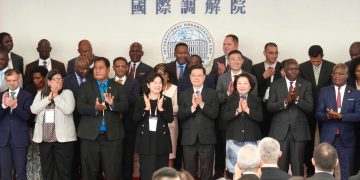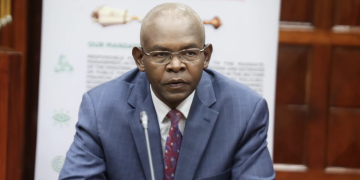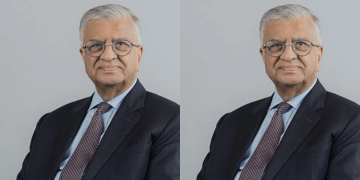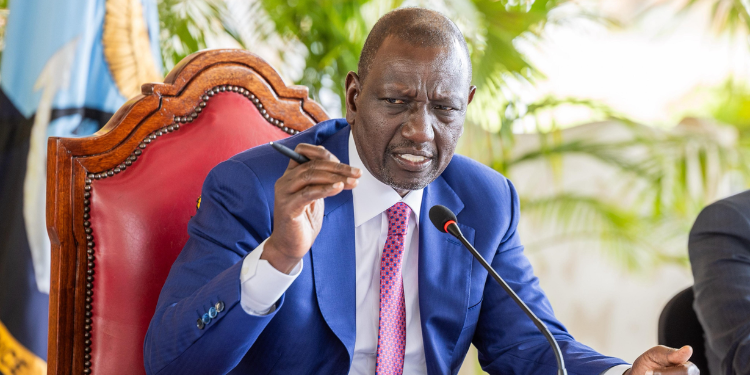President William Ruto has called on the United States to reconsider its position on the global finance reform agenda, urging full support for the outcome document adopted at the Fourth Financing for Development (FfD4) Summit in Seville, Spain.
Ruto, while delivering his speech, called on the US and other member states with reservations to fully support the agreement, emphasising Africa’s call for fairness, investment, and partnership.
“I urge the United States to reconsider its position and call on other member states with reservations on parts of this consensus to fully support the outcome document,” Ruto said.
“While I respect the document’s structure, from domestic to global resources, let us not confuse form with priority. Public international finance remains indispensable. Africa is not asking for favours. We want fairness, partnership, and investments.”
At the same time, President Ruto emphasized Africa’s indispensable role in the global climate agenda.
Ruto Calls on US to Reconsider Its Stand on Global Finance Reform
He, however, warned that excluding African goods, services, and carbon credits from international markets undermines the continent’s ability to contribute meaningfully to climate solutions.
The Head of State welcomed the summit’s focus on debt, liquidity, and the cost of capital. He emphasized that there is now broad consensus on the need for a development-oriented sovereign debt architecture — one where public debt serves as an instrument for growth, not a trap.
“Additionally, effective debt management and crisis prevention, including debt transparency and responsible borrowing and lending, are key, while lowering borrowing costs and expanding fiscal space are essential for sustainable development,” he said.
“It is imperative to have debt sustainability and credit assessments that are accurate, objective, and long-term oriented.”
Also Read: Ruto Leaves the Country for Spain & United Kingdom
The FfD4 Summit opened on June 30 in Seville, Spain, with the adoption of the Sevilla Commitment—an intergovernmentally negotiated outcome that lays the foundation for a renewed global framework for financing development.
The agreement includes commitments to close the $4 trillion financing gap for the Sustainable Development Goals (SDGs), address global debt crises, and reform international financial rules to create a fairer, more transparent system.
The Sevilla Commitment places people’s needs at the center of global finance and offers renewed hope for millions around the world.
For the first time in the history of the FFD process, the Outcome Document was adopted without consensus — and notably, without the support of the United States.
Why US Withdrew from the Financing for Development Conference
The United States cited a range of concerns in its decision to withdraw support for both the preparatory process and the Outcome Document. These include objections to newly proposed mechanisms they consider costly, duplicative, and potentially undermining to existing efforts.
The US also reiterated its rejection of the 2030 Agenda for Sustainable Development.
Also Read: Kalonzo Reveals When He Can Only Work Together with Ruto
Furthermore, it opposed proposals granting the United Nations a more prominent role in shaping the global debt architecture and expressed objections to the use of the term “gender” in international policy language.
“The international financial institutions have independent mandates and authorities, and we do not support attempts in the UN system to dictate their priorities or activities. The UN has no authority to dictate trade policy or intellectual property law,” read the statement by the US.
“The United States rejects and denounces the ever-widening definition of sustainable development and efforts to redefine authorities and mandates of the 2030 Agenda for Sustainable Development and the SDGs, and we will no longer reaffirm either as a matter of course.”
Additionally, the US reiterated that it cannot accept any text calling for a UN intergovernmental process on debt or proposing a role for the United Nations in the global debt architecture, arguing that the UN is neither mandated nor equipped for such a function.
Follow our WhatsApp Channel and X Account for real-time news updates.


![President Ruto Address During Mashujaa Day And How He Honored Raila [Full Text Speech] President Ruto Address During Mashujaa Day And How He Honored Raila [Full Text Speech]](https://thekenyatimescdn-ese7d3e7ghdnbfa9.z01.azurefd.net/prodimages/uploads/2025/10/ruto-mashujaa-address-360x180.jpg)







































































![President Ruto Address During Mashujaa Day And How He Honored Raila [Full Text Speech] President Ruto Address During Mashujaa Day And How He Honored Raila [Full Text Speech]](https://thekenyatimescdn-ese7d3e7ghdnbfa9.z01.azurefd.net/prodimages/uploads/2025/10/ruto-mashujaa-address-120x86.jpg)


